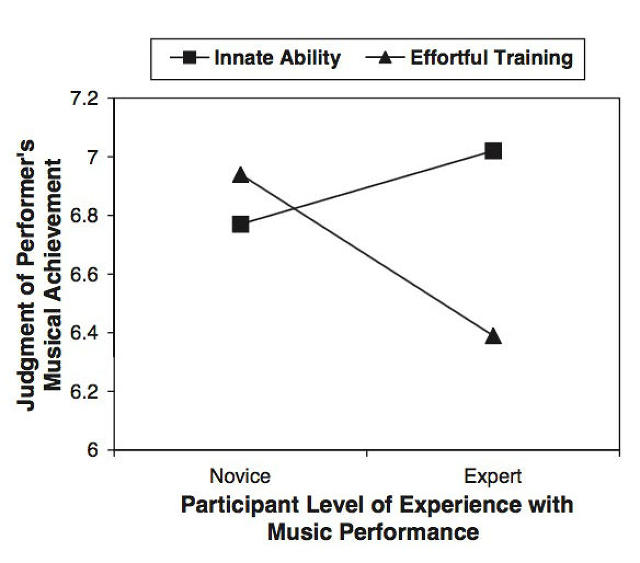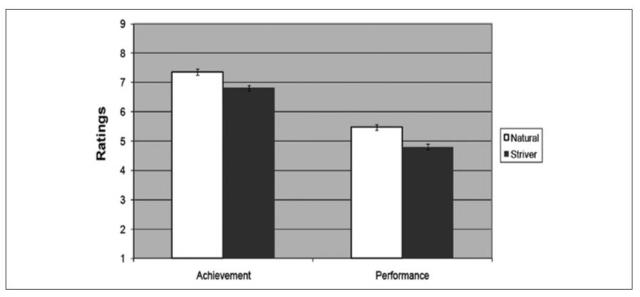People say they love hard workers but they really love natural talent—a bias with troubling implications when it comes to hiring.
In his 2016 State of the Union address, President Obama spoke of the "uniquely American belief that everybody who works hard should get a fair shot." It's a hopeful value we all say we share: rooting for the striver who ascends the corporate and social ladder through years of grit and effort. But it's also one that past evidence suggests we're willing to betray—demonstrated by all the companies and colleges that select applicants with natural talent or untapped potential over those who've advanced by hard work alone.
"We are likely influenced by concepts such as the Protestant work ethic, and the American dream, and ideals such as a truer meritocracy, opportunity, and social mobility that can be achieved with enough hard work and motivation," says management scholar Chia-Jung Tsay of University College London, via email. "We may subscribe to these ideas, but our preference for and fascination with naturalness still seem to emerge through our actual choices."
Tsay's research has documented this tendency—which Malcolm Gladwell coined as the "naturalness bias"—across creative fields. A few years back, Tsay and Harvard psychologist Mahzarin Banaji asked 103 professional musicians to rate two performers based on a written profile and clips of them playing Stravinsky's Trois Mouvements de Petrouchka. The two performers were actually the same person, with one profile tweaked to emphasize work ethic and the other made to highlight natural talent.
In questionnaires, study participants claimed to value effort and practice over innate ability. But when it came time to rate the "two" performers, they gave the natural higher marks on talent, likelihood of future success, and value as a musical company hire, Tsay and Banaji reported in the Journal of Experimental Social Psychology. In a follow-up, the researchers found that seasoned experts favored naturals even more than novice musicians did—a finding with troubling workplace implications, given that veterans tend to make hiring decisions.

Natural talent arguably plays an outsized role in musical ability. So Tsay recently expanded her research into a work area where striving and experience are widely considered virtues, and where objective past returns are valued as much if not more than potential success: entrepreneurship.
The study had a similar set-up to the musical one. Participants reviewed an entrepreneur profile that was manipulated to emphasize either inborn talent or hard work, then heard a one-minute business proposal that was actually the same in both cases. Across two samples, the "natural" earned higher ratings than the "striver," both in terms of perceived achievement (things like talent level and willingness to hire the person) and pitch evaluation (things like performance skill and willingness to invest in the venture).

Once again, participants with more business experience showed a particularly strong preference for natural talent—a sign that "not only may expertise not protect against the naturalness bias, but experts may even be at greater risk for an inclination toward the natural,"writes Tsay in Personality and Social Psychology Bulletin.
In a separate experiment, Tsay quantified just how much being a natural was worth to a potential business partner or employer. She showed participants pairs of entrepreneurs with different objective achievement measures (such as years of experience, IQ, and capital raised) and backgrounds that stressed natural ability or hard work. Participants with business experience were willing to give up a good bit of established success to invest with naturals: 4.5 years of leadership, 28 IQ points, and more than $39,000 in capital to be exact.
"We may risk overlooking highly qualified candidates who possess various valued achievements, in favor of apparent 'naturals' who may actually be weaker," Tsay tells Co.Design. "By recognizing our implicit preference for naturals, we can become better equipped to identify and hire the people who actually possess the achievements we value and who are more likely to help us attain greater success in the long run."
Whether or not the naturalness bias holds true outside the lab, and just how it might vary based on an evaluator's own distinct personality traits, is unclear. And of course its potential employment impact breaks both ways. Knowing that experienced professionals tend to side with innate talent, for instance, suggests it might be advantageous to flash some natural skills during investor pitches or job interviews, instead of focusing on dedication.
In future research, Tsay hopes to gain a better sense of why the bias exists in the first place. One possibility, she says, is that people might unwittingly perceive natural talent as a more stable characteristic—aligning it with "an immutable, more authentic, and more certain path to success." A path that, from the perspective of a hard worker, looks an awful lot like a shortcut.